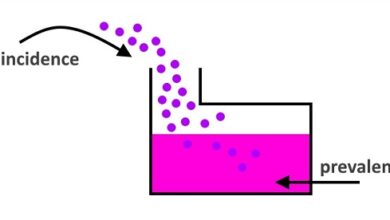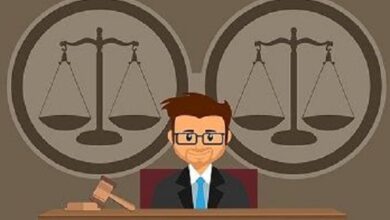What is Professional ethics characteristics importance examples
Professional ethics is a set of codes or standards that apply to all professions. For this reason, it is common to hear about medical ethics, legal ethics, business ethics, bioethics, among others.
This ethics can also be defined as one that deals with values, norms or principles that are inseparable from the exercise of an occupation or profession. For example, legal ethics require lawyers to respect the confidentiality of their clients, which means they cannot disclose any confessions they make.
Professional ethics should not be confused with personal ethics; The latter is made up of personal experiences and other factors, such as family education, religion and culture. In other words, personal ethics has many sources that organize and structure it.
Instead, professional ethics are made up of specialized rules that vary according to the profession or work performed.
Indeed, it may happen that a person experiences contradictions between his professional and personal ethics; in these cases, the person must reflect on the circumstances and lean towards the ethics most favorable to both his conscience and the people in his environment.
It is worth mentioning that professional ethics aims to establish a code that serves people when they face problems or certain situations in their area. Therefore, it is stated that this ethics helps to avoid errors and allows the exercise of the profession to flow properly.
Characteristics of professional ethics
– Is a branch or extension of morality
For philosophers and academics, professional ethics can be classified as part of philosophy related to morality and human obligations.
In other words, professional ethics – like all ethics – stem from man’s need to order and standardize human behavior in order to promote coexistence. In the case of professions, ethics seeks to favor the provision of a service.
For this reason, it is said that ethics is linked to philosophical and moral precepts. For example, medical ethics requires healthcare professionals to provide an optimal and safe service to their patients.
– Seek the moral rectitude of any profession
The purpose of this ethic is to lead any profession on the path of good, according to the parameters or social norms of each culture; therefore, he is said to seek moral rectitude. It should be noted that moral rectitude refers to a way of living or acting in a conscious and coherent way, which facilitates coexistence with others and with oneself.
Moral rectitude in the professional field implies the fulfillment of a series of values or duties such as responsibility, punctuality, respect, among others. These elements are universal values, but each profession may require specific duties.
For example, graphic designers have a duty to deliver their designs on time with the client, while doctors must comply with the use of gowns, gloves and masks when performing an operation.
As can be seen from the example, each profession has its own regulations. However, they all share some universal values such as tolerance, commitment, among others.
– Reflects the goals and values of each profession
Professional ethics is a reflection of the goals and principles of each profession. This means that this ethic is used to publicize the virtues that professionals exercise in their fields.
For example, one of the virtues expected of doctors is that they adhere to standards of hygiene, while a goal of their profession is to help other people.
On the other hand, creativity is expected of an editor as one of his virtues; You must also have proper and consistent use of language. All these elements are located within the framework of professional ethics regulations and represent the essence of any profession.
Importance of professional ethics
Professional ethics is important for several reasons: first, because it allows organizing any profession based on a series of rules. These standards promote productivity and excellence among professionals.
If the exercise of a profession was disorderly or did not follow any law, it would not be possible for this professional to contribute to social development and his own growth.
In addition, professional ethics encourage teamwork and create bonds between colleagues. This is because conforming to professional standards increases positive interactions between people. For example, if a partner is punctual and responsible, others value him for his level of commitment to his profession.
professional ethics code
When speaking of the professional code of ethics, reference is made to the system that encompasses the obligations or responsibilities of each profession. In other words, these codes are a set of laws that regulate the actions of a profession according to its needs.
Take a public accountant‘s professional code of ethics as an example; It lists a list of virtues and duties such as: integrity, independence, objectivity, professional care and competence, confidentiality, dissemination and collaboration.
Examples
– When a person does not feel well emotionally and still successfully fulfills his duties at work, he is fulfilling the ethics required by his profession.
– In the exercise of their profession, doctors swear that they affirm that they will fulfill the principle of beneficence; This means that they have an obligation to act for the benefit of other people, therefore, they must suppress prejudices and illegitimate interests (ie, that distance themselves from the medical objective).
– Lawyers comply with professional ethics when they respect the confidentiality agreement between them and their clients. They are also ethical when upholding the rights of society and individuals in accordance with the laws of their nation.
Lawyers can sometimes experience contradictions between their personal and professional ethics; This is when they have to defend a client they disagree with, or they must maintain a client’s confession that they are doing something illegal.
The same applies to the ethics of some companies: sometimes they take actions that affect the environment, however, their ethics override environmental interests.
– Journalists apply professional ethics when they comply with the following values: justice, responsibility and impartiality; The latter refers to the fact that all events have two points of view, so journalists have a duty to analyze both circumstances from an objective perspective.
– In general, all professions are governed by the principle of non-maleficence, which means that the exercise of any profession cannot harm or injure another human being. For this reason, a doctor, journalist, writer, teacher, biologist or any other professional is to be ethical when their actions contribute to social well-being and collective development.



